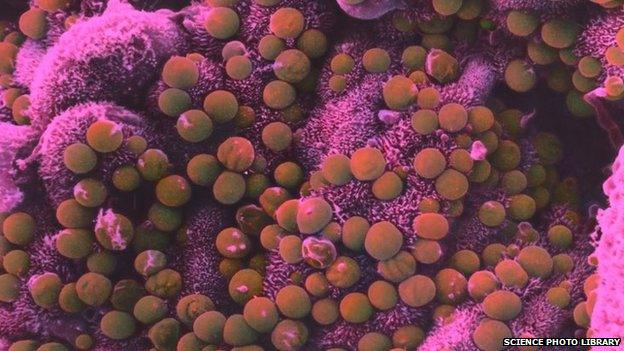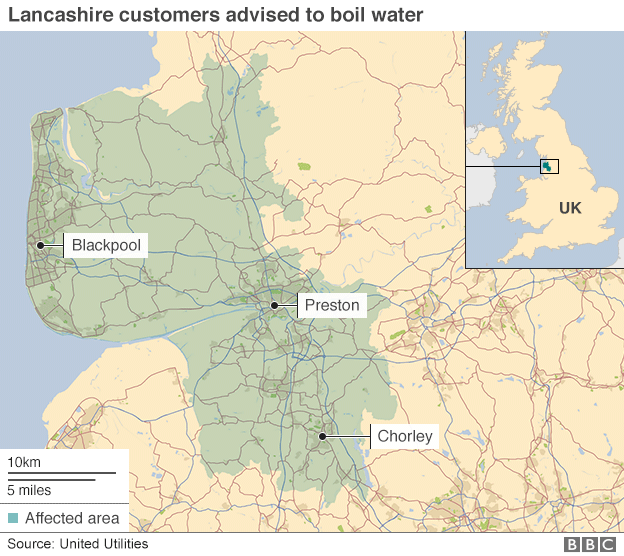What is cryptosporidium parasite?
- Published

Cryptosporidium is a microscopic parasite that causes extreme diarrhoea
Some residents in Lancashire are being urged to boil their drinking water after a microscopic bug was detected - but what is cryptosporidium?
How harmful is it?
The bug, known as crypto, is a parasite that can cause extreme diarrhoea called cryptosporidiosis, also shortened to crypto.
It can affect all people but for those with weakened immune levels crypto can be severe and even life-threatening.
Millions of parasites can be released in a single bowel movement which are then passed on to others through accidental ingestion.
What happens if you ingest it?
The most common symptom is diarrhoea but other warning signs include dehydration, nausea, vomiting, fever and weight loss.
Most people with healthy immune systems can recover without treatment by making sure they drink plenty of fluids.
The health website Patient recommends adults, external drink 200ml of water after each bout of diarrhoea and children be given plenty of fluids to replace those lost.
Babies under six months old have an increased risk of suffering dehydration.
Where is crypto usually found?
Parasites are organisms which live in or on another organism.
Crypto is found in water, food or soil contaminated by infected faeces.
It lives in the intestine of infected animals and humans and is found in their faeces.
Where has it been discovered in Lancashire?
Low levels of crypto have been detected at Franklaw water treatment works outside Preston which provides water to Blackpool, Chorley, Fylde, Preston, South Ribble and Wyre.
United Utilities is recommending people boil tap water before drinking it or using it in food preparation, or to brush teeth.

- Published7 August 2015

- Published6 August 2015
